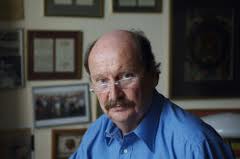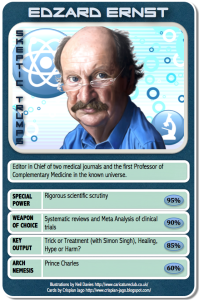Originally published Thursday, Sept. 13, 2013
One would have thought that, after losing their libel case against Simon Singh, chiropractors across the world might have got their act together and stopped claiming that their ‘bogus’ treatments are effective for conditions that lack both supporting evidence and scientific rationale. However, our investigation which was carried out in 2010, well after the libel action and the embarrassing defeat for chiropractors, sadly suggests otherwise.
It was aimed at determining the frequency of claims of chiropractors and their associations to treat a range of pre-defined conditions: asthma, headache/migraine, infant colic, colic, ear infection/earache/otitis media, neck pain, whiplash as examples of indications not supported by sound evidence, and lower back pain as an example of a condition supported by some evidence.
For this purpose, we conducted a review of 200 websites of individual chiropractors and 9 websites of chiropractic associations from Australia, Canada, New Zealand, the United Kingdom, and the United States between 1 October 2008 and 26 November 2008. Our outcome measure was either direct or indirect claims regarding the eight above-named conditions.
We found evidence that 95% chiropractor websites made unsubstantiated claims regarding at least one of these conditions. Four of the 9 (44%) associations made justified claims about lower back pain. All 9 associations made unsubstantiated claims about headache/migraine. Unsubstantiated claims were also made about asthma, ear infection/earache/otitis media, neck pain.
We concluded that the majority of chiropractors and their associations in the English-speaking world seem to make therapeutic claims that are not supported by sound evidence, whilst only 28% of chiropractor websites promote lower back pain, which is supported by some evidence. We suggest the ubiquity of the unsubstantiated claims constitutes an ethical and public health issue.
Criticism regarding unsubstantiated claims have been raised even from within the profession of chiropractors (albeit very, very rarely); two chiropractors suggested that they are “evidence of a lack of professionalism and of quackery” that have evolved within a “tradition of dogma, fallacious reasoning, and unconventional attitudes about research and science”. I quite agree; instead of self-critical attitudes, chiropractors seem to develop a pathological state of denial.
The codes of ethics of chiropractors vary, of course, from nation to nation, but they tend to agree that information used must be factual and verifiable and should not be misleading or inaccurate. Unsubstantiated claims such as those disclosed by our investigation thus violate the rules of these codes. More importantly perhaps, they also misinform unsuspecting consumers and put public health at risk. This has now been going on for such a long time that it truly is embarrassing – not just for chiropractors (who seem to be immune to embarrassment) but to regulators and even to society at large who tolerates such abuse at the hands of the chiropractic profession.
Considering more recent events in the realm of chiropractic, it seems highly unlikely that the situation is going to improve any time soon. Misinformation in the name of maximising income , it often seems to me, is what chiropractic is really about.
_____________________________________________________________________________________________________
Edzard Ernst MD, PhD, FMedSci, FSB, FRCP, FRCPEd
Emeritus Professor, Exeter University
 Dr. Ernst qualified as a physician in Germany in 1978 where he also completed his MD and PhD theses. He received hands-on training in acupuncture, autogenic training, herbalism, homoeopathy, massage therapy and spinal manipulation.
Dr. Ernst qualified as a physician in Germany in 1978 where he also completed his MD and PhD theses. He received hands-on training in acupuncture, autogenic training, herbalism, homoeopathy, massage therapy and spinal manipulation.
Later, he became Professor in Physical Medicine and Rehabilitation (PMR) at Hannover Medical School and Head of the PMR Department at the University of Vienna. In 1993, he moved to the UK and became Chair in Complementary Medicine at the University of Exeter. He is founder/Editor-in-Chief of two medical journals (Perfusion and Focus on Alternative and Complementary Therapies).
He has published 48 books and more than 1000 articles in the peer-reviewed medical literature. His work has been awarded with 14 scientific prizes. In 1999, he took British nationality.
His research focussed on the critical evaluation of all aspects of alternative medicine. Unlike most of his colleagues, he does not aim to promote a particular therapy. His goal is to provide objective evidence and reliable information. It is fair to say that this ambition did not endear him to many quasi-religious believers in alternative medicine.
Healthy Skepticism is republishing selections from Dr. Ernst’s blog with permission. Please visit his website at http://edzardernst.com

